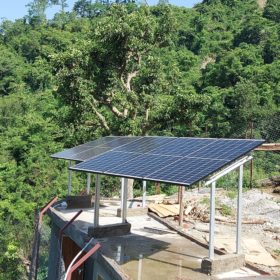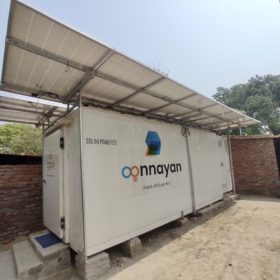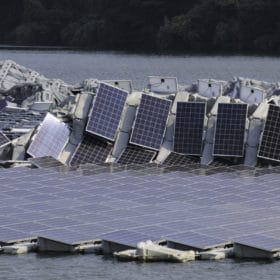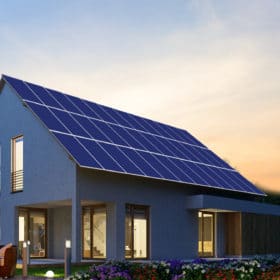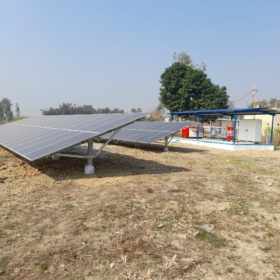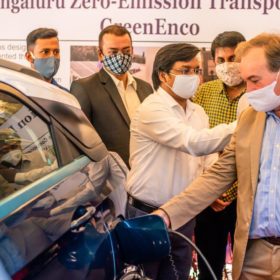Solar-plus-storage at a hilltop ashram
Loom Solar has installed a solar plus storage system at a small ashram in the hills of Tehri Garhwal, Uttarakhand. The system comprises 6x440W Shark Super high-efficiency PV panels, a 5kWh (100Ah/51.2V) Atom lithium battery, and a 5kVA high-frequency design (string) inverter.
Transforming lives through solar mini-grids
Smart Power India (SPI), a subsidiary of US-based impact investor Rockefeller Foundation, has supported the setting up of more than 300 renewable energy mini-grids cumulating to 9.2 MW of capacity across Bihar, Uttar Pradesh, and Jharkhand, the largest such cluster in India. Jaideep Mukherjee, chief executive officer at SPI, spoke to pv magazine about the role of mini-grids in rural upliftment and the barriers to overcome.
Solar-powered cold storage as a service
Small and marginal farmers in the Muzaffarpur district of Bihar are making productive use of solar energy to reduce their losses and increase income, thanks to an innovative pay-per-use cooling service for perishable horticulture produce.
Developing climate-resilient decentralized solar solutions
A new report states decentralized solar installations in climate-vulnerable regions of Assam, Jharkhand, and Rajasthan lacked design to deal with future climate risks. The report authors, based on their study, outline considerations for policymakers, implementing agencies, vendors, and funding agencies to build resilient structures.
Visaka’s solar roof granted patent rights in South Africa
The company believes introducing its ATUM solar roof (PV panels integrated on cement boards) would be a gamechanger for South Africa. The product, which can directly be used as a roof, will enable distributed microgrids in the region to address the energy requirements of the unelectrified.
CSC partners Tata Power on installation of solar-powered microgrids and water pumps
Tata Power brings technology and financial strength to set up the distributed, small-scale solar power systems in rural areas and provide round-the-clock power supply to households and businesses. CSC brings to the partnership village-level entrepreneurs to provide quick, low-cost service support.
India reaches 39,104 MW of grid-connected solar
Karnataka leads with 7355 MW of installed solar capacity. It is followed by Rajasthan (5473 MW) and Tamil Nadu (4404 MW).
IISc sets up off-grid EV charging station powered by Vikram Solar modules
The Indian Institute of Science (IISc), Bangalore has set up a solar-powered charging station to conduct the system’s impact assessment. The system—designed by UK-based renewable energy advisor GreenEnco—uses Vikram Solar’s 16 mono PERC solar modules of 400 Wp each, a hybrid inverter, and battery storage.
In India, 67.6 million people live in cities embracing renewable energy in a big way
As of 2020, only 13 cities in India had renewable energy targets and/or policies in place. These cities, however, are home to a significant 67.6 million people.
Uttar Pradesh tenders for 10 MW of off-grid solar plants
Bids are invited to install and commission off-grid solar power plants in sizes varying from 500Wp to 50,000Wp.
